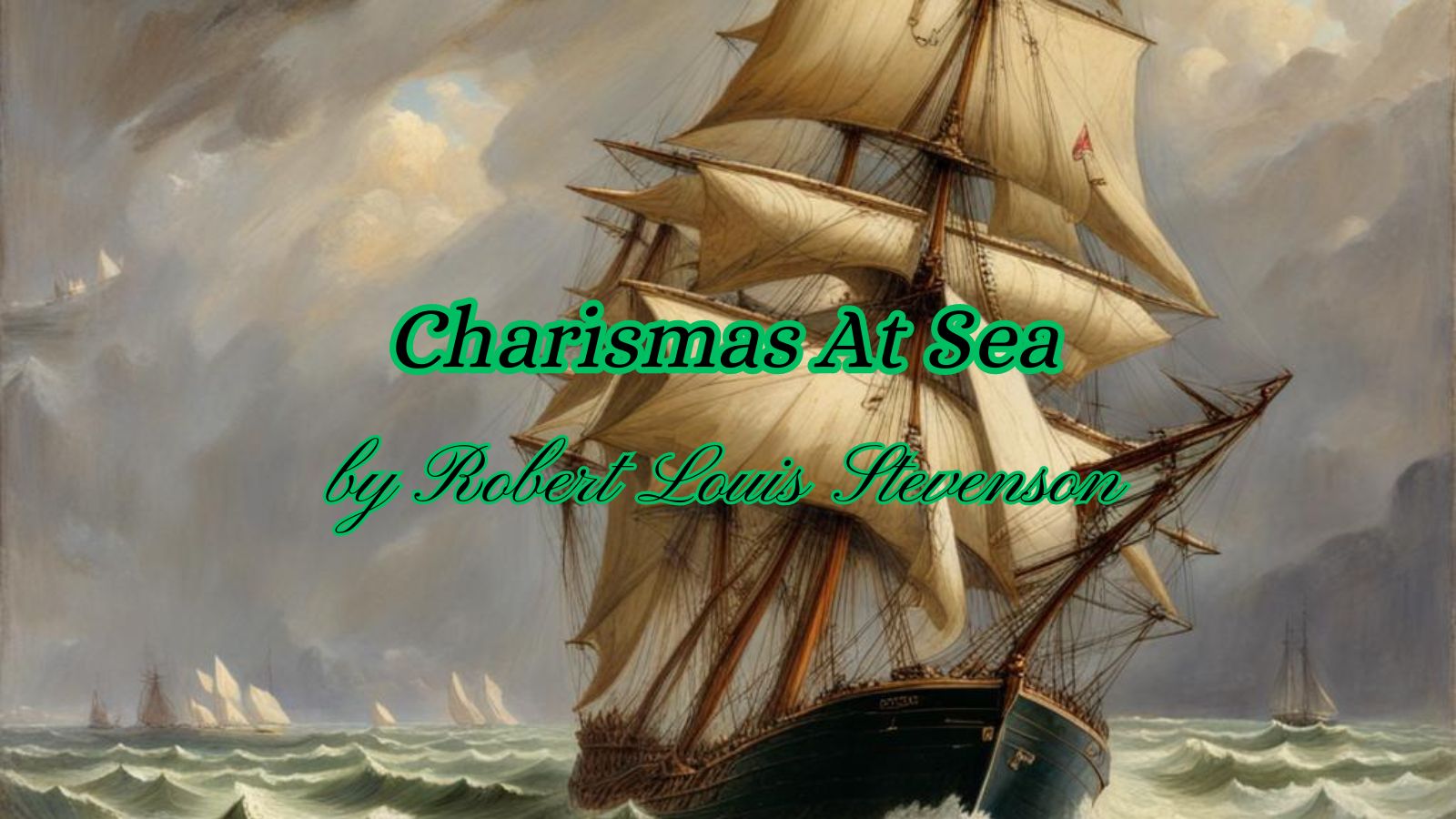Christmas at Sea by Robert Louis Stevenson

Christmas at Sea
by Robert Louis Stevenson
The sheets were frozen hard, and they cut the naked hand;
The decks were like a slide, where a seaman scarce could stand;
The wind was a nor’wester, blowing squally off the sea;
And cliffs and spouting breakers were the only things a-lee.
They heard the surf a-roaring before the break of day;
But ’twas only with the peep of light we saw how ill we lay.
We tumbled every hand on deck instanter, with a shout,
And we gave her the maintops’l, and stood by to go about.
All day we tacked and tacked between the South Head and the North;
All day we hauled the frozen sheets, and got no further forth;
All day as cold as charity, in bitter pain and dread,
For very life and nature we tacked from head to head.
We gave the South a wider berth, for there the tide-race roared;
But every tack we made we brought the North Head close aboard:
So’s we saw the cliffs and houses, and the breakers running high,
And the coastguard in his garden, with his glass against his eye.
The frost was on the village roofs as white as ocean foam;
The good red fires were burning bright in every ’longshore home;
The windows sparkled clear, and the chimneys volleyed out;
And I vow we sniffed the victuals as the vessel went about.
The bells upon the church were rung with a mighty jovial cheer;
For it’s just that I should tell you how (of all days in the year)
This day of our adversity was blessèd Christmas morn,
And the house above the coastguard’s was the house where I was born.
O well I saw the pleasant room, the pleasant faces there,
My mother’s silver spectacles, my father’s silver hair;
And well I saw the firelight, like a flight of homely elves,
Go dancing round the china-plates that stand upon the shelves.
And well I knew the talk they had, the talk that was of me,
Of the shadow on the household and the son that went to sea;
And O the wicked fool I seemed, in every kind of way,
To be here and hauling frozen ropes on blessèd Christmas Day.
They lit the high sea-light, and the dark began to fall.
“All hands to loose topgallant sails,” I heard the captain call.
“By the Lord, she’ll never stand it,” our first mate, Jackson, cried.
. . . “It’s the one way or the other, Mr. Jackson,” he replied.
She staggered to her bearings, but the sails were new and good,
And the ship smelt up to windward just as though she understood.
As the winter’s day was ending, in the entry of the night,
We cleared the weary headland, and passed below the light.
And they heaved a mighty breath, every soul on board but me,
As they saw her nose again pointing handsome out to sea;
But all that I could think of, in the darkness and the cold,
Was just that I was leaving home and my folks were growing old.
###
Robert Louis Stevenson (1850-1894) was a celebrated Scottish novelist, poet, essayist, and travel writer. Born into a family of engineers in Edinburgh, he first pursued law to satisfy his family but soon turned to his true passions of writing and literature. Though plagued by illness for most of his life, Stevenson traveled extensively in Europe and North America, using his journeys across the Atlantic as inspiration for many of his writings.
Some of Stevenson’s most enduring fiction works take place amidst these travels, including his coming-of-age classic Treasure Island (1883) and Kidnapped (1886). Known for his unique narrative style and mastery of atmosphere, Stevenson also authored seminal works like Strange Case of Dr Jekyll and Mr Hyde (1886), a thrilling exploration of good versus evil. His short fiction like The Bottle Imp (1891) and Markheim (1885) also demonstrate his interest in moral ambiguity and psychology. Beyond his dark, ingenious fiction, Stevenson’s travelogues vividly capture life as an eccentric wanderer trekking across oceans and continents.
Though Stevenson’s prolific writing career was cut short when he died suddenly at 44, he left behind an incredible literary legacy. His novels of high adventure and Gothic tension proved pioneering for adventure and suspense fiction. Today, Stevenson’s revolutionary fiction still inspires countless readers and writers around the world.